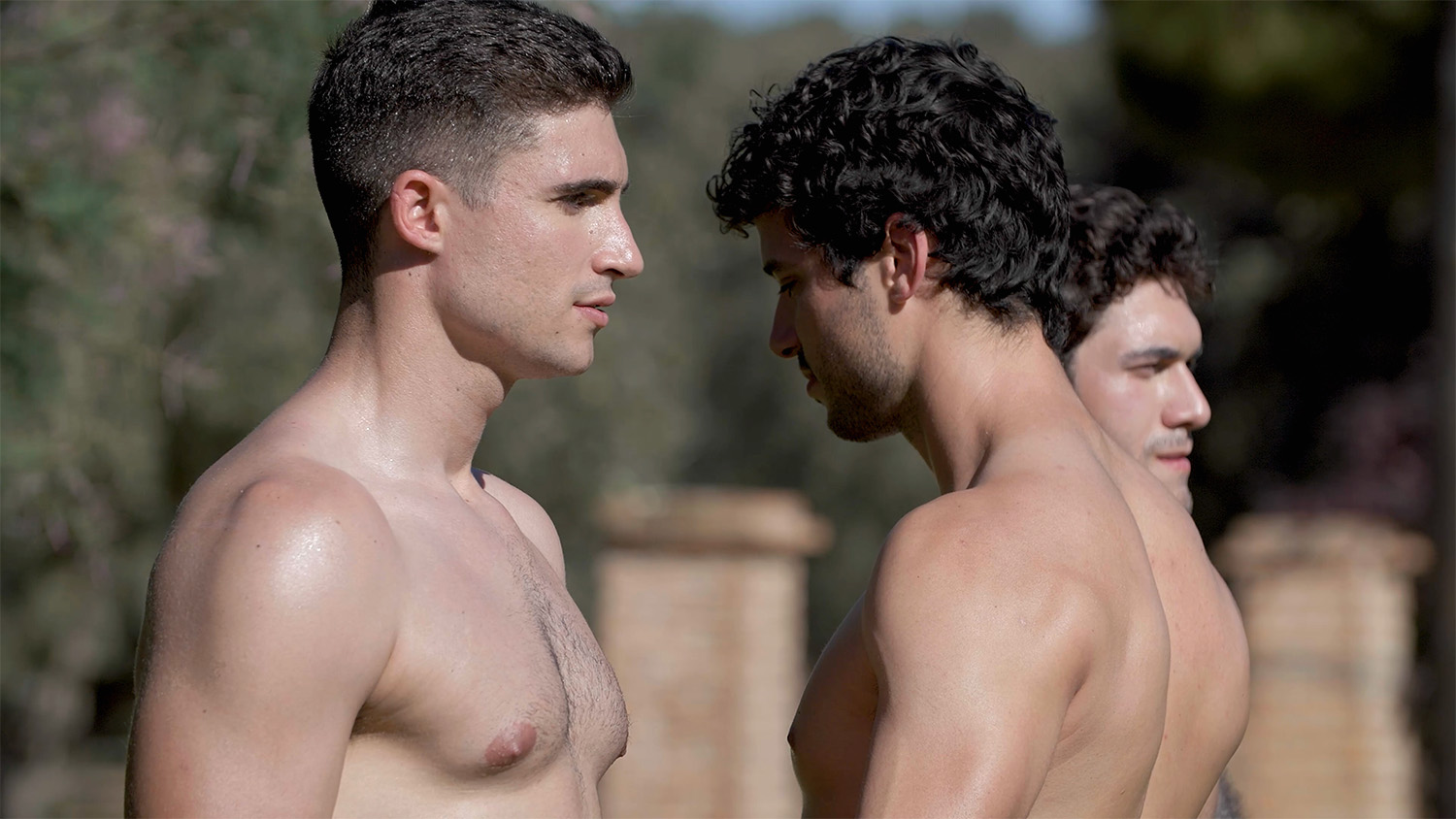
Get a best value annual BarefootRoar subscription to keep up to date with innovative new digital content throughout 2024
Worldwide Roar is now BAREFOOT MAN! Learn more
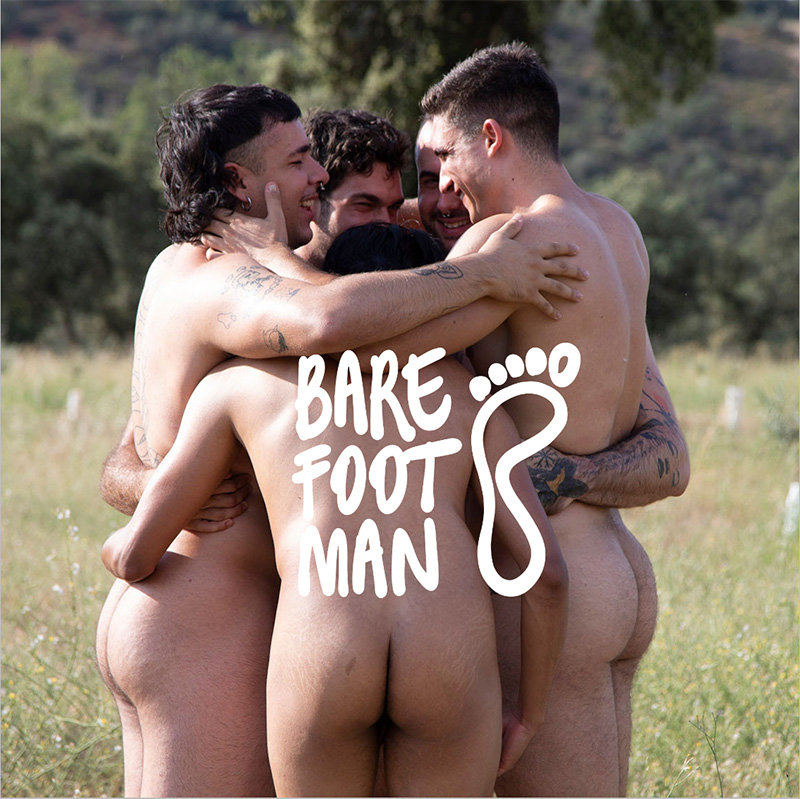
Stay up to date with our latest news, competitions and offers. We look forward to staying in touch.
Barefoot Man cares about how we look at the naked body. That includes addressing the lack of gender parity in nudity that still prevails in popular culture.
A recent article in the Guardian cites a study from 2019 which proves the disparity between male and female nudity is real. It found that 27.3% of female characters took their clothes off in 2018’s top 100 films at the US box office compared with only 8.5% of men.
That’s quite a gender display gap!
The focus of the Guardian article is a growing trend towards full frontal nudity on screen “in a crop of summer comedies, with female stars daring to bare all for laughs.”
The article quotes critic Kristen Lopez, film editor for the Wrap: “Movies are trying to bring back joy and fun after the Covid years.”
“I think we’re seeing this response to the last [few years] of sadness and trauma. What’s the best way to do that? To bring back frivolity and nudity.”
Lopez later points out that men are not being very visible in supporting the sisters here.
“There is an attempt by women to reclaim ownership of their bodies and make nudity a part of that,” Lopez is quoted as saying. “At the same time, it’s still putting the burden on women, so we’re not really seeing nudity in equal measure for men.”
What Lopez would like to see is what she calls “equal opportunity nudity”, although she recognises that this could be a challenge. As another contributor states, “The biggest taboo is male full frontal nudity.”.
And don’t we know it! That is why reaching gender parity in cultural nudity is one of our key goals at Barefoot Man. We know that closing what we call the Barefoot Deficit will not happen anytime soon, but it is a goal that men can get behind – and in front of!
Our plea to male actors, their directors, their intimacy coaches and anyone else who stumbles into creating a moment of male nudity is this: do not strap latex porn dicks onto male actors and performers. As the article mentions in passing, “…the TV industry seems to be happily embracing prosthetic penises in shows such as Pam & Tommy, Euphoria and Minx.”.
The use of prosthetic penises is not showing solidarity with women. Nor is it supporting men. It is imposing a damaging and distorted view of the penis on mainstream culture.
It is time for us to desexualise how we look at women and take an authentic look at men.
Notes from Our Journey
When we started out as the Warwick Rowers, we were a group of fairly privileged, university-educated white men. The only thing that really distinguished us was our age (the photographer was definitely a lot older than the athletes, though he denies it now) and our sexuality (if you have ever met our photographer, you will know that plausible deniability was never an option).
We were exploring how our age and sexuality had led us to very different experiences of sport. It was inclusion, but within very defined parameters. We confronted the role of sport in perpetuating homophobia and we showed the power of individuals within sport to make it a leader for change.
We have never stopped producing our calendars or our films or our monthly content because the further we have travelled, the more we see the privilege of men like us, and the responsibility of all men to support change.
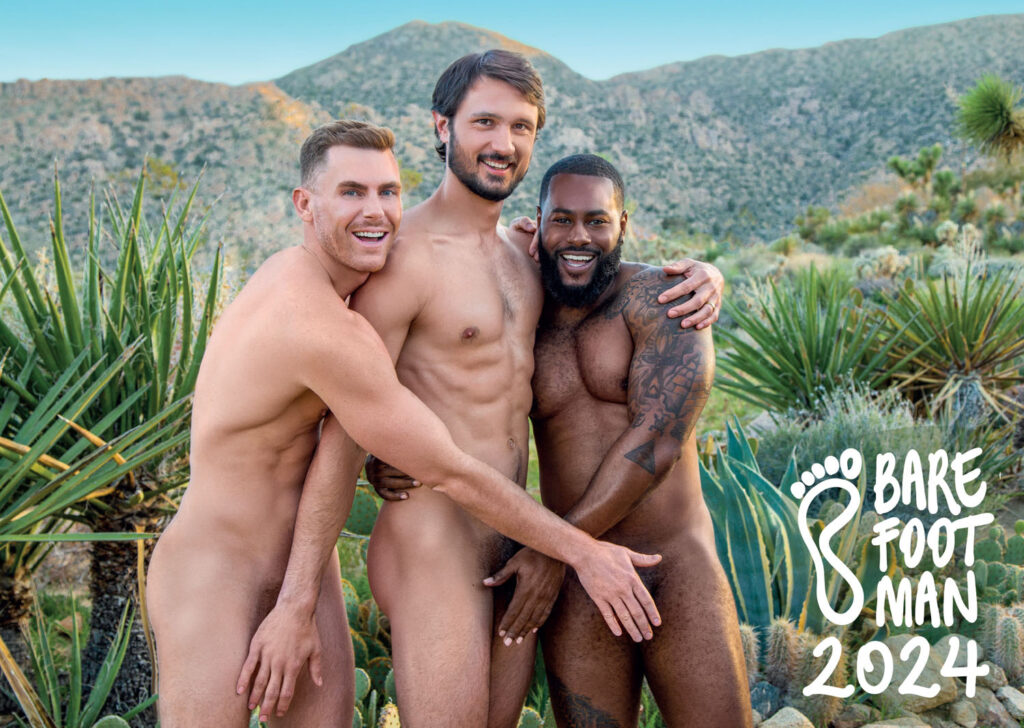
As our project broadened into an exploration of healthier masculinities and how men could help to create a more equitable society, we began to understand more about people’s lives are affected by the intersections between their ethnicity and their gender as well as their sexuality.
Women now play crucial roles at all levels in our project, including as photographers, but we still have a long way to go. We are particularly keen to explore the challenges faced by men who are Black and queer.
We know that not everyone believes in the theory of intersectionality, but it has always made sense to us. Exploring how our lives depend on where we land at birth has always been at the core of our project, from the first moment when a Boomer queer photographer bumped into some Millennial alpha males at a university boat club. So it is very much part of what we intend to explore at Barefoot Man.
We have just launched a WhatsApp channel because we are committed to engaging more people in a more active and diverse conversation about healthier masculinities. Look out for more details of our new channel in our December issue and, of course, on social media. We want to hear more voices of women, of BIPOC people, of people who may not have felt a connection to naked men in a calendar. Because one thing that we come to understand over the lifetime of our project is that the old school rules of masculinity have affected everyone.
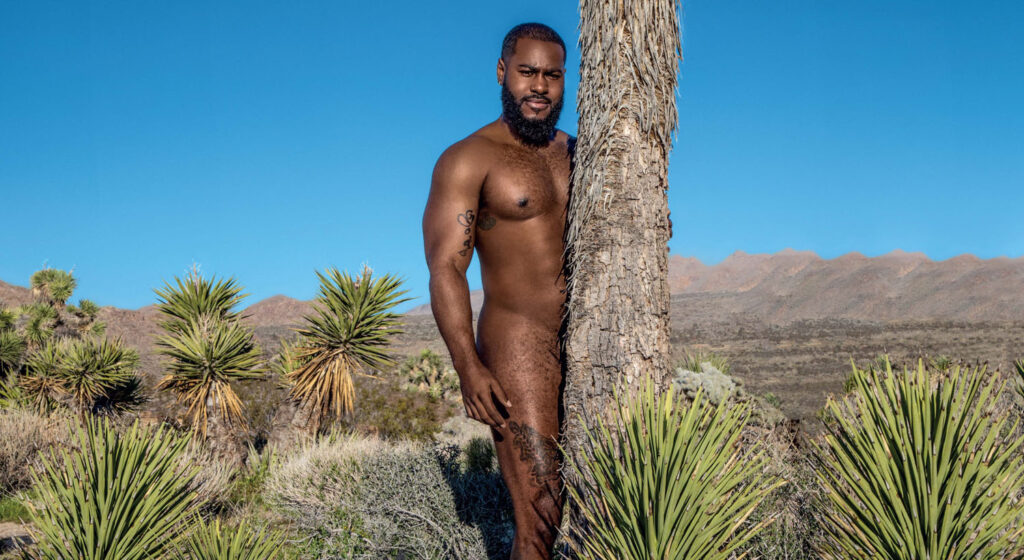
The first Black man to sign up to our campaign was D’Paul. He was not actually the first to appear, but he signed up in October 2019. Of course, this was just a few months before Covid-19 changed everything, so D’Paul’s debut got delayed. We eventually made it work when D’Paul brought his incredible energy and life experience to our retreat in Joshua Tree, Southern California in April 2023.
Meanwhile, downhill free rider Cody joined our project in 2021 when our intrepid duo of videographer Tom and photographer went off to Mexico to film and shoot the first FireRide festival in Puerto Vallarta. Cody became the first Black man to have a starring role in our calendar and our digital content, including being our pull out poster boy for in the 2022 calendar – one of our favourite images, and a favourite with our supporters too.
In 2022 we met Leyenne, who came to work with us at the Include Summit for inclusive sport in Birmingham. It was not long before Leyenne was touring the conference centre in a WR onesie, and a few weeks after that he was happy to get out of the onesie at a calendar shoot in London, again with our regular contributing photographer Holly. He made our 2023 calendar in two stunning shots by Holly.
Born and raised in Memphis, Tennessee, D’Paul has already impressed our team, our subscribers and our supporters on social media with his humour and his candor about the challenges he has faced as a non-conforming Black man in a conservative culture.
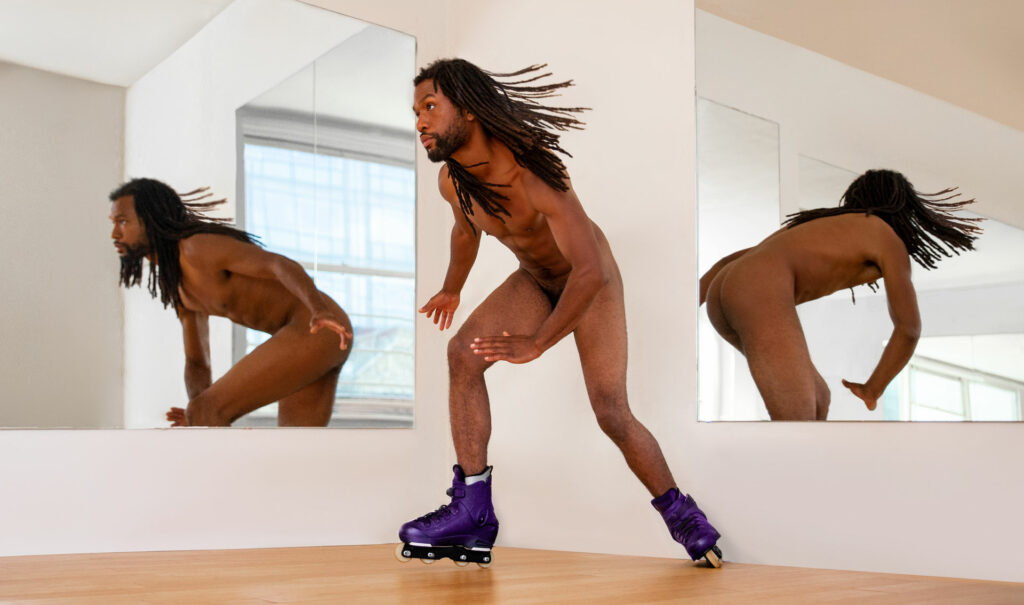
D’Paul is helping us to create a more diverse conversation within our project, and we are proud that he is on the cover of our 2024 calendar as well as appearing regularly in our films and monthly Portfolio.
In this November 2023 issue of ROAR Portfolio, we have brought together a collection of some of our best shots of Cody, Leyenne and D’Paul. We are very keen to work with more Black and BIPOC men, so get in touch if you’d like to be featured in a future calendar and a future Piece To Camera!
While it took us a while to get to this party, we feel we are in good company. Rustin is the first feature film from Barack and Michelle Obama’s production company, Higher Ground. Already tipped for an Oscar, the film celebrates the life of Bayard Rustin, a civil rights activist whose significant work was often discounted because of his sexuality.
Now streaming on Netflix, Rustin chronicles the run-up to the 1963 March on Washington for Jobs and Freedom, during which Martin Luther King delivered his “I Have a Dream” speech.
The film stars Colman Domingo in the title role. Directed by George C Wolfe, the film offers a portrait of grassroots activism and a man who, faced with prejudice from some civil rights leaders on his own side, declared: “On the day that I was born Black, I was also born homosexual. They either believe in freedom or justice for all, or they do not.”
We are with Bayard Rustin on that. And we are proud that our ‘we’ includes D’Paul.
To read more about Bayard Rustin and to access a review of the film, check out this recent article by David Smith in The Guardian.
Why We Are Looking at Buttholes
There was a time when the WR project would have edited buttholes out of our films and images – although we know from forums that we have occasionally slipped up over the years! Now, we want to show them. We want to show that the butthole is as much a part of male anatomy as the penis, and particularly part of how we experience sexual pleasure.
Human culture is a rich tapestry woven with beliefs, norms, and taboos that vary widely from one society to another. The male butthole is a fact of life that, like menstruation, tends to remain hidden in the shadows.
In this article, we get to the bottom of how we look at buttholes by delving into the cultural sensitivities surrounding them, and shedding light on the diversity of perspectives, taboos, and changing attitudes.
In many cultures, the male butthole has traditionally been a source of embarrassment and even shame. The lingering stigma around anal sexuality has roots in historical taboos and patriarchal, heteronormative ideologies. However, there has been a gradual shift in attitudes, largely due to the LGBTQ+ rights movement and increased awareness surrounding sexual health. Discussions about anal health and sexual pleasure are more open, with individuals and healthcare professionals addressing concerns without the fear of judgment.
Why We Need to Care About Buttholes
Regardless of cultural beliefs, it is essential that we all understand the importance of anal health. This includes discussing common issues such as haemorrhoids, anal fissures, and sexually transmitted infections, as well as promoting safe sexual practices, such as condom use.
It is also important for inclusion that we become more conscious of how our attitudes towards men’s buttholes are products of heteronormativity and toxic versions of masculinity.
Thankfully, the LGBTQ+ community has recently had the power to play a pivotal role in challenging stigmas and opening up conversations about the male butthole. By advocating for equal rights and sexual health, this community has made significant strides in normalizing discussions about anal health and pleasure. We believe all men need to be allies in a quest that is about letting the sunshine into our buttholes instead of thinking that’s where sunshine comes from!
Education is another key area, and one that we will be addressing in Barefoot Man. One of the most effective ways to break down cultural sensitivities is through education and awareness. Schools, healthcare systems, and community organizations can offer informative programs that address the male butthole as a natural part of human anatomy. Encouraging open, non-judgmental discussions can help individuals make informed decisions regarding their health and sexuality.
This piece was originally published in the September issue of ROAR Portfolio. Go here to subscribe to our monthly digital downloads and browse our extensive range of digital content – including our recent film about butthole sunning, which is included in our WR23 Roar Portfolio for September!
A brand name is more than a tag. It embodies an organisation’s essence, beliefs and vision. Changing brand name is a challenge that no organization undertakes lightly.
So why are we changing our name again?
We started out with a question. Can men challenge homophobia by taking their clothes off?
As the Warwick Rowers, we proved that they could! As the Worldwide Roar, we enabled sportsmen everywhere to join the original rowers. Dozens of men from different countries and different sports have now shown their passion for change through our project.
All the men who have taken part in our project have helped us to understand its potential to deliver more than a message. We have seen how much they have benefitted from the experience.
This is not just about our message to the world, it is about the men who undress to deliver that message.
Our participants are men who have learned to check their privilege, test their vulnerability and make a lifelong commitment to change.
They went naked to connect with the world around them. To leave a lighter footprint on society. To recognise that men could live more happily with less control. To embrace vulnerability and empathy through breaking taboos around how the rest of us could look at them. That is how they came to be the original Barefoot Men.
Barefoot Man embodies our pride in the achievements of the men who have joined our project and our unwavering faith in their potential.
As Barefoot Man, we can draw a clearer map for the future. Join us as we take another bold stride forward on our journey.
The video below is the “I’d Like to Buy the World a Coke” ad from Coca Cola’s 1971 “It’s the Real Thing” campaign. It has been consistently celebrated as one of the most memorable and iconic spots in advertising history – not least as an early example of diverse visibility.
Fifty years later, the battle for diverse visibility continues, and in ways that were unimaginable in 1971.
Today we know that not everyone can look at the world through the straight male gaze. The desires of others – especially women and LGBTQI men – must be visible and celebrated too. We need to change how we look at men, and some men need to change how they look at the world!
The guys in the WR project agree. These real amateur athletes get totally naked for our calendar (and even more totally naked in our books, films and monthly Portfolio!). They commit to nudity with purpose to show their authentic support for change. They know that once you get your kit off in the internet age, you will be out there naked forever. So WR is literally the real thing! It’s what the world wants today.
And now you can buy the world a calendar! Or at least your friends, your neighbours, your colleagues and everyone else you know.
We still live in a world run by men who want to look at women.
We still see the objectification of women all around us, from Instagram to Game of Thrones. And now that film-makers feel obliged to include the odd penis on the menu, that penis is likely to be fake*.
This is not the world you asked for. Where is the visibility of your desire?
The Roar is one of the few places where we specifically champion the rights of people who want to look at men. People who want to create a world where all of us can look at each other in a healthy way, on equal terms.
We are men of all sexualities who believe in your right to look at us. So much so that we will step into the firing line for you. Naked.
But to win this revolution we need your help!
Our visibility can be your visibility.
All you need to do is buy our calendar, hang it wherever you want and see what happens next.
You can put us somewhere private, as a reminder to yourself that you have allies. We hope you’ll feel the difference, and we’d love to hear about it.
Or you can hang us in a public place as a declaration to the rest of the world that you stand with us for change! We’d love to hear your stories of how the world responds.
Either way, you will have our gratitude and our support. And our naked bodies, of course.
Happy New Year from all of us! We’ll be here all year with our skin in your game.
The Men of Worldwide Roar 2023
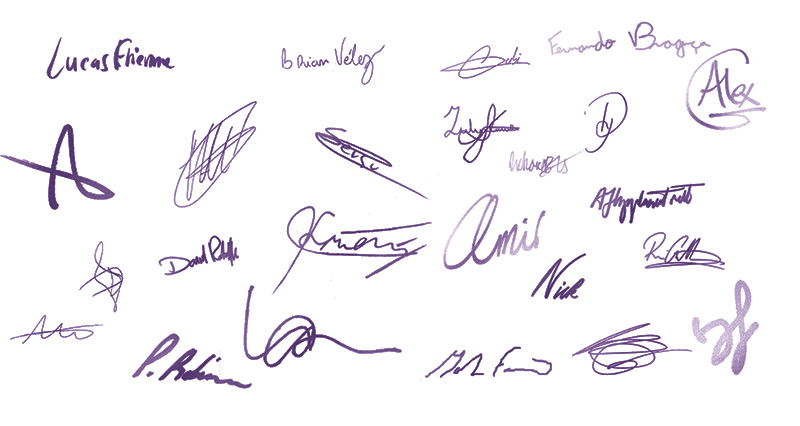
PS Please note this uprising is cruelty free and suitable for vegans! True, you have to take us out and put us up against the wall! But we promise you don’t have to shoot anyone. Our highly professional and very humane photographers have already done that bit for you. 🙂
PPS *Our standard calendar does not include frontal nudity. Our films, books and digital content do demonstrate our commitment to the cause as men with actual penises in all sizes.
Whatever you might think about her accidental ascent to becoming a head of state, Queen Elizabeth II became the formal leader of a major power in the mid 20th century and went on to win the respect of the world. For seventy years, she met all the most important people on the planet. More importantly, they met a smart, yet unpretentious woman who had agency. Her fifteen prime ministers valued her ear and her experience. The way she fulfilled her inherited role created a legacy for women everywhere. We sent her our calendar and we understand it not only gave her a giggle but delighted her as a sign of the progress made during her reign to show greater respect for women and for the LGBTQ+ community whom she embraced so fondly in her day to day life. God bless you, Queen Elizabeth, who quietly guided so many of us through so much extraordinary change.
Here is a letter that we wrote to Queen Elizabeth in 2015
Your Majesty,
We read that you enjoy receiving correspondence from your subjects throughout the Commonwealth, and we thought we would write to share our story with you.
We are the men’s rowing team at the University of Warwick and for the last six years we have been producing a calendar. Given the state of our student finances, it is a blessing that ours is the sort of calendar where the lack of a costume budget has been no barrier to success.
When we began our calendar, it was with the modest ambition to raise a few hundred pounds for much-needed boat repairs. Six years later, we have raised over half a million pounds to support our club and other good causes.
We believe our success lies in the very generous support that we received early on from the gay community, and how we responded to that. Although most of us are straight, we immediately embraced our LGBT supporters. Over time, and somewhat to our surprise, this has led to our calendar becoming an international symbol of challenging homophobia, particularly in sport.
The calendar now sells in over eighty countries around the world, and our tour of the United States last Christmas generated half a billion page views in US online media. (If you google Warwick Rowers, you will see there is a lot out there!)
Since 2014, 10% of calendar profits** have gone to funding the establishment of Sport Allies, a project to make sport more inclusive, particularly of LGBT young people. Team sport is where the problem of exclusion is worst. For example, Sport Allies’ research has identified that LGBT students who engage in sport at university are 50% less likely than their heterosexual counterparts to play a team sport.
As rowers, we value hugely how participating in team sport has benefitted each of us in terms of our personal and social development, and we know that those seeking to recruit university graduates value these qualities, too. In today’s competitive labour market, that can be the difference between success and failure. Our goal, through the message of our calendar and through the work of Sport Allies, is to help young LGBT people access the same life chances that we have. For us, it is nothing more than good sportsmanship and fair play.
Just last month, some of us were lucky enough to travel to New York to help launch an initiative by Visit Britain to attract more LGBT visitors to the UK. We were very flattered to be told that our calendar is an example of how modern Britain is able to maintain traditional pursuits and values yet demonstrate progressive leadership in a swiftly changing world. It prompted us to write this letter to you now.
It is an enormous honour for all of us to be able to make a contribution, no matter how small, to how Britain is seen in the world, and we are honoured, Ma’am, to remain Your Majesty’s humble and obedient subjects – in all our states of attire.
The Warwick Rowers
**Since 2016, WR has devoted 100% of its surplus resources to funding Sport Allies and academic research into healthier masculinity.
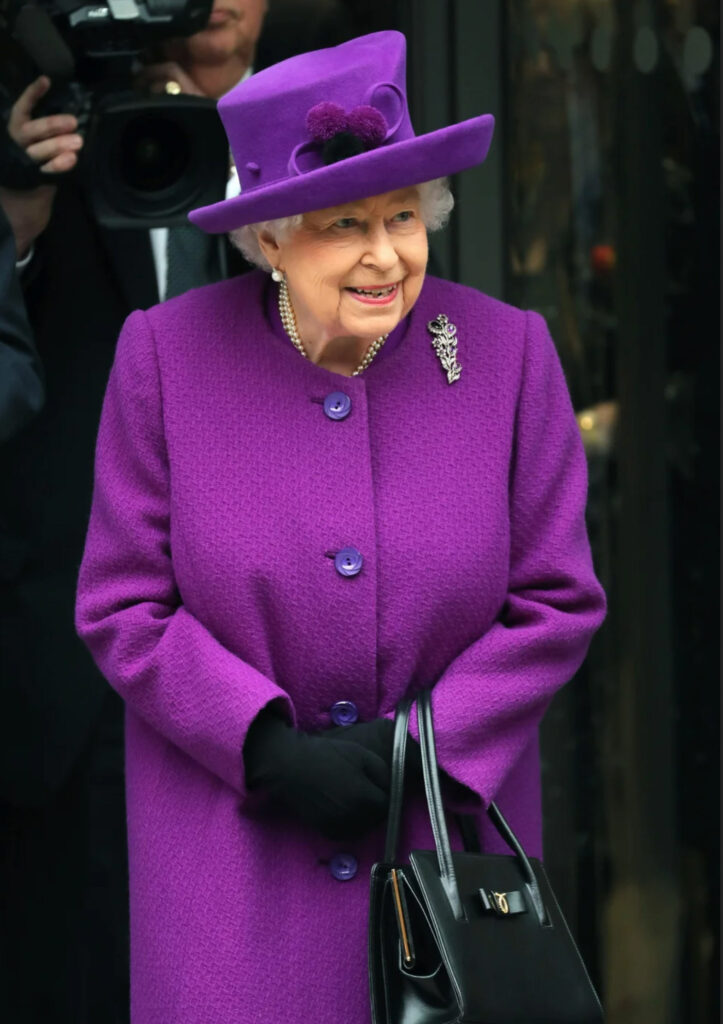
This Christmas, as every year, we have posted pictures from 2014 of Tristan and his Warwick Rowers 2015 calendar buddies decorating a tree in Bel Air, Los Angeles.
The pictures have become like the decorations that every family gets out of a box each Christmas – much loved and somehow irreplaceable! But we are always open to change and this year we decided it was time to think again about how we celebrate Christmas.
The thing is, our family is getting bigger. Our first calendar cover as the Roar featured more athletes than ever before and our third calendar features the most athletes in total.
We are now working with sports bodies around the world to ensure that the Worldwide Roar will continue to grow, and at an even faster rate! Supporters will soon be able to get involved in the Roar in ways that we had not thought possible before. The Worldwide Roar will deliver on the promise of the Warwick Rowers by helping everyone to understand their relationship with masculinity, and how that affects their relationship with the world.
We will always cherish our pictures and our memories from 2014, when a handful of rowers went halfway around the world to promote our message of allyship. It was a great moment for our project, and we wanted to reflect the community that we have become as a result.
That was when Lucas, our calendar star and social media guru had a great idea! He invited our Instagram followers to create their own takes on our iconic Christmas shots and send them to us to share on our account. The response was incredible.
There were so many entries that we had to ask people to stop after 24 hours so that Lucas’s own family could have some time with him over the holidays!
You can see some of the results here, and the rest by visiting our Instagram account at @worldwideroar. All wonderful shots from incredible supporters, creating a new Christmas tradition at the Roar.
Thank you to everyone who took part in our competition, and to all of you who have spent many Christmases with WR. We’re family and we’re already looking forward to creating a lot more new traditions in 2022!
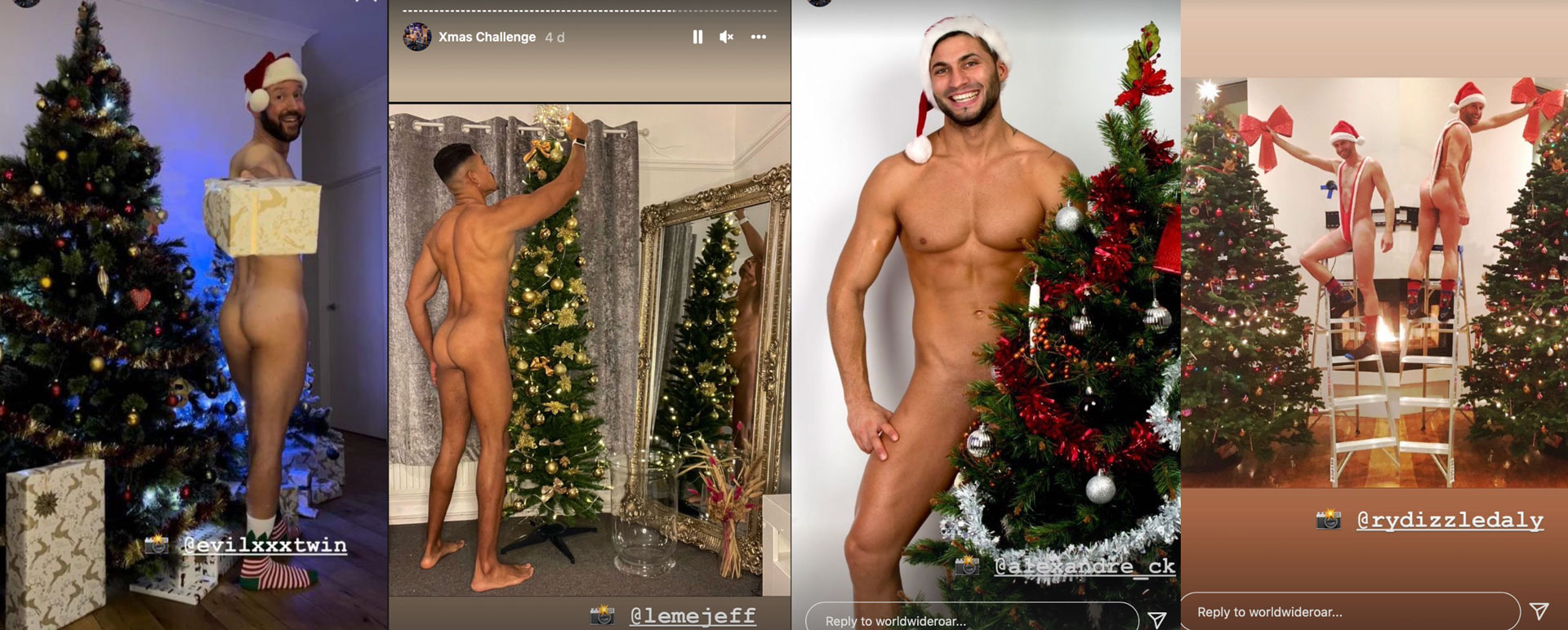
An earlier version of the following blog by our photographer, Angus Malcolm, was originally commissioned and published by the #yesallmen twitter campaign, a movement that grew out of the horrifying murder of Sarah Everard in London in March 2020. The #yesallmen project brings together men who want to play a part in ending male violence. You can find out more about the campaign and read blogs by other authors here:https://yesallmen2021.blogspot.com
Do you remember that controversial Gillette commercial “We Believe: The Best Men Can Be” from early 2019? Like everything else pre-Covid, it seems like a lifetime ago, so here’s a quick recap. Over the course of two minutes, the ad invites men to own their responsibility and take a lead in ending homophobia, misogyny, and, most relevantly for our campaign, the objectification and physical abuse of women. Its message bears many similarities to the one that #yesallmenis seeking to share now.
Within 48 hours of launching, the commercial had over two million views on YouTube and 23k likes. I was one of those likes – and I didn’t just like it, I loved it! I saw the possibility that #MeToo might have started a new, unstoppable momentum in the struggle against hegemonic masculinity.
The production team made effective use of news clippings, found footage and scripted performance to create a highly polished film that condemns hypermasculinity, patriarchal entitlement, heterosexism and the sexual objectification of women. It proposes that men “…need to hold other men accountable” and “…to say the right thing, act the right way”. Towards the end, a voiceover acknowledges that “some men” are already doing this but finishes with a challenge: “some is not enough, because the boys watching today will be the men of tomorrow”.
As an LGBTQI man who had been at the sharp end of some of the behaviour Gillette was calling out, this ad was a breath of fresh air. As someone with a professional perspective on healthier masculinity and a background in health promotion, most recently at the Worldwide Roar, I saw this as a milestone in meaningful corporate responsibility. We were witnessing nothing less than a watershed moment in the history of advertising!
The 23k YouTube likes were outnumbered ten to one with over 214k thumbs down, and Gillette were quickly obliged to turn off comments in response to a tsunami of abuse. The polite comments denounced the company as man haters – traitors who had insulted and abandoned their own customers. Others were not so kind.
When I went back to review the response to the ad for this blog, I discovered a video launched two days later by Egard, a relatively unknown company that makes watches. Called “What is a man? A response to Gillette”, the film uses similar classy music, inclusive visuals and slick production to offer a very different perspective on men.
Through a series of credibly sourced statistics, the Egard video praises men’s bravery (because men account for 93% of all workplace fatalities), men’s heroism (because 97% of all war fatalities are male) and their role as protectors (more questionably based on a UN Office on Drugs and Crime statistic that 79% of all homicide victims are male). It invites our sympathy for their vulnerability (nearly half of fathers who pay child maintenance have no visitation rights), their disposability (80% of all suicide victims) and their greater risk of being homeless.
To be clear, I have no reason to doubt the statistics quoted in Egard’s ad. My real problem isn’t even the conclusions it draws, though I would question every one of them. What really distinguishes each of the statements made in the film (and annoys me greatly) is their complete irrelevance. The entire film is built on misdirection. It dodges the question, changes the subject and then seeks to claim the moral high ground. There are complex historical reasons why it is mainly men who have gone down mines, or into battle, or into burning buildings, but one thing is indisputable: none of those reasons and none of those outcomes justifies homophobia, misogyny or male violence against women.
Whatever their reasoning, the makers of the Egard ad (along with their 500,000 fans on YouTube) seem to have been unduly offended by Gillette’s message. Yes, Gillette are undoubtedly arguing that men can do better – but precisely because men are not inherently toxic. Quite the opposite, in fact. Gillette suggest that men are capable of showing great leadership and that’s why the company is putting resources into helping them grow. It’s the same thinking that drives the #yesallmen and Worldwide Roar campaigns.
It would be easy to see the name #YesAllMen, as a wake-up call for men like the makers and fans of the Egard video: men who believe that, while there are always a few bad apples, most men (especially the ones who look and think like them) are good. They are being unfairly attacked by self-appointed judges of political correctness over so-called ‘toxic masculinity’ when they clearly have no case to answer.
The subtext of #yesallmen cannot be “#Yes, all men – but really we mean the unwoke who just don’t get it yet”. Nobody gets a hall pass here: #yesallmen is just as relevant to those of us (myself included) who may consider ourselves enlightened, or even trail-blazingly woke: the men for whom this is more about sharing the message than hearing it because obviously we’re already in the choir.
A year ago, I doubt I would have seen it this way. I have for most of my life focused on my lived experience as queer. It made me an outsider and gave me a mission. It led me into a twenty-five year involvement in the response to HIV, then to the BBC where I dedicated my time to making LGBTQI perspectives more visible in mainstream entertainment. For the last ten years I’ve been running an art-based project that particularly challenges homophobia and the objectification of women. In other words, while I’m maybe not quite in vegan hipster territory, I had long seen myself as having a respectable woke score for my age.
Then George Floyd died at the hands of police officer Derek Chauvin. Police killings are tragically commonplace in the US and the death of George Floyd, at the hands of a sociopathic policeman who is now a convicted murderer, was almost successfully swept under the carpet by the initial police reports. Floyd’s death could so easily have been lost amid the growing chaos of Covid-19 and the headline-grabbing inadequacy of the pandemic response from various populist leaders around the world. But thanks to one teenaged girl with a camera phone, the #BLM movement exploded into life before our eyes.
I supported the protests and welcomed the widespread condemnation of systemic racism in the police. As someone who’d marched against apartheid in the 80s and signed every petition against racism that was put in front of me, I saw this moment as a massive leap forward. (Unsurprisingly, the actor turned watchmaker behind the video above saw it differently. Fox News loved his new video so much they gave him an award.)
I was blind-sided, however, when the Worldwide Roar got called out on social media for a lack of Black visibility. How did we end up in the dock with the forces I’d been fighting all my life? I sought to clarify why our project, which had grown out of a desire to highlight and address the hegemonic power of straight white men, had not historically featured more Black men, but I quietly wondered if our critics might have a point.
With a little help from the lockdown, I spent quite a lot of last year reappraising beliefs and perceptions that I had not questioned for decades, if ever. I came to see that it wasn’t enough for me to acknowledge the reality of racism, to check myself for racist thoughts and behaviours, or even to call out the racism of others.
My biggest epiphany came when I discovered and devoured ‘Caste’ by Isabel Wilkerson – an extraordinary book that shines a forensic light on the unacknowledged yet inescapable privilege of all white people, whatever their views might be. Wilkerson confronts the rigidity and inescapability of a system that many of us (particularly those of us most privileged by the system) might not even see. However invisible it might be, this is nothing less than a caste system. Wilkerson’s compelling, perceptive and heart-breaking narrative enabled me to see with unprecedented clarity the systemic injustice that continues to dominate the life chances of African Americans through arbitrary but deeply embedded social and legal structures that rival the most overt caste systems the world has ever seen.
I started to see how Wilkerson’s analysis works beyond race, too, as part of an unholy trinity that perpetuates patriarchal privilege and the dominance of hegemonic masculinity. The other two ‘caste systems’ deal out the life chance cards according to our gender and sexuality. Crucially, if you draw a Venn diagram of all three, you will see how men never lose.
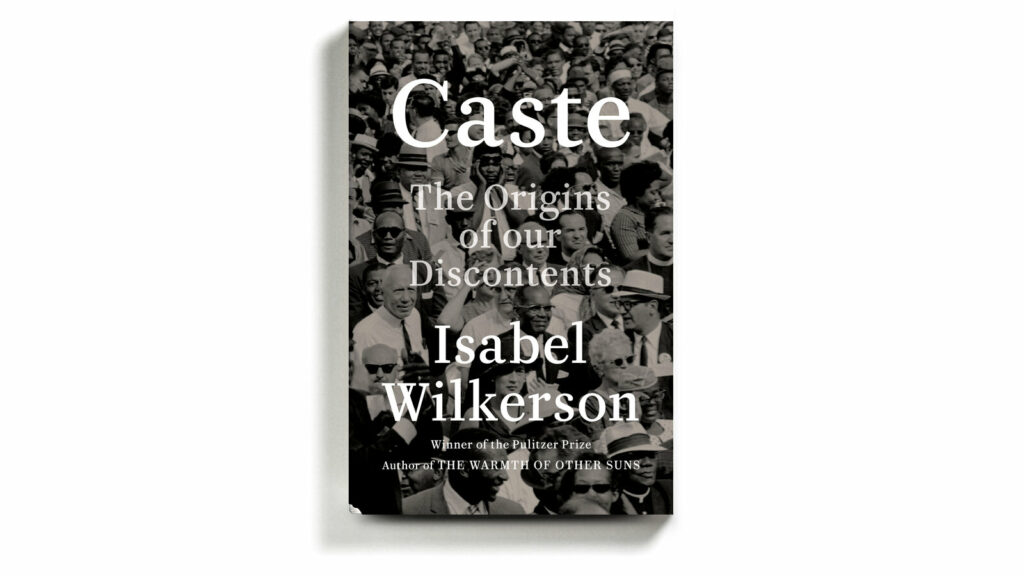
There is no escaping our responsibility as men because there is no escaping our male privilege. It is not about where you put your penis, or what colour it is, or how politely and consensually you introduce it to the world. The clue is that you have one. Men live in a system that has benefitted them at the expense of others. We can only repay that colossal, unearned privilege by actively challenging the system that created it.
This is not a call for any man to wear sackcloth and ashes. It’s a lot easier to see our disadvantage than our privilege, because we feel the pain of our disadvantage, and may never feel our privilege at all. In a caste system, privilege is an opioid. It has been in men’s bloodstreams since before we were born. I only became aware of mine when I reviewed my medication, and I can see that I will always have a problematic relationship with it. However I deal with my privilege, it will always be as a recovering addict.
Acknowledging our privilege (and the inextricability of our relationship with it) doesn’t mean men should slink away and hide. Quite the opposite. While I cannot escape my privilege, I can put it to work. Indeed, I will never really know how much my effectiveness as an activist came from respect for my queerness and how much came from unconscious deference to the white male educated baggage with which I sashayed confidently into every battle with the status quo.
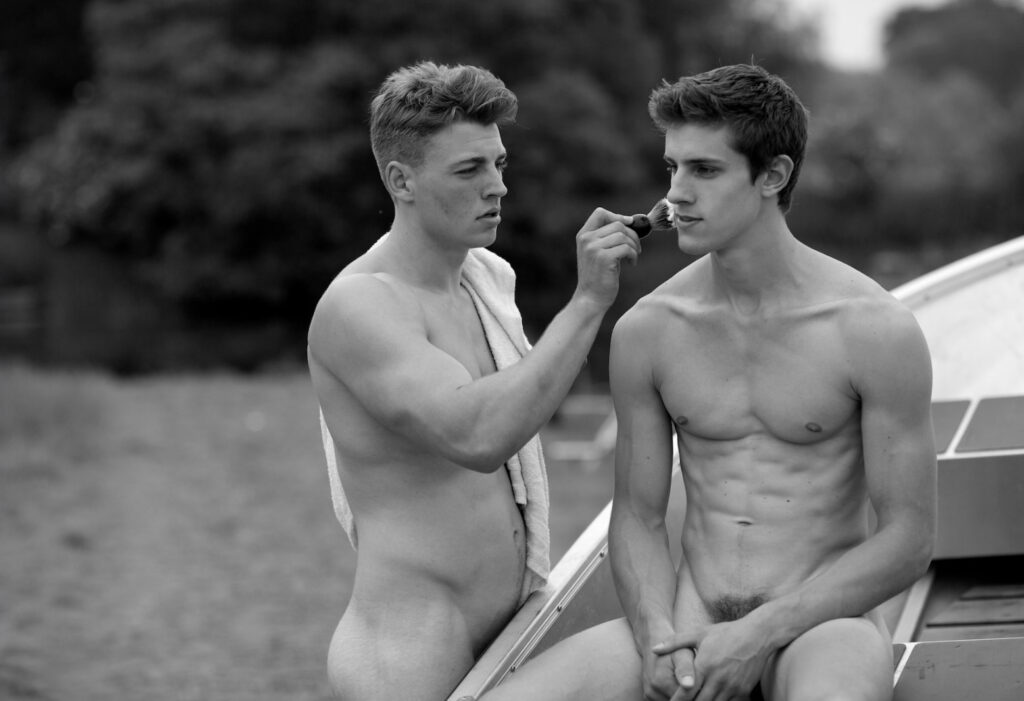
As someone whose focus is promoting healthier masculinities, I believe Gillette got it right. Men can do better – but as I’ve come to realise from my own experience, it may take a lifetime. Indeed it may take generations, but it starts with all of us who intersect with being male recognising how much we have benefitted from privilege throughout our lives, how inescapable our privilege remains, and how personally accountable we are for the debt we now owe as a result.
It is only by acknowledging our privilege as men that we can hope to escape a damaged version of masculinity that has poisoned the lives of many, including men themselves. We can find our own freedom by helping others to find theirs. This is what now drives my own work at the Worldwide Roar and I see the same aspiration at the heart of #YesAllMen.
Sarah Everard was entitled to expect a better deal from life than the one she got. Every man owes it to Sarah, to all other women and to everyone at risk from male violence to raise the bar for masculinity.
Men, it’s time for us to be the change the world needs to see.
We know you care about men as much as we do. Today is International Men’s Day and we want to celebrate by sharing with you some of the coverage that WR has received to mark the occasion.
Please share this blog with anyone who might not yet know how important it is to change how we look at men – or how much fun it can be!
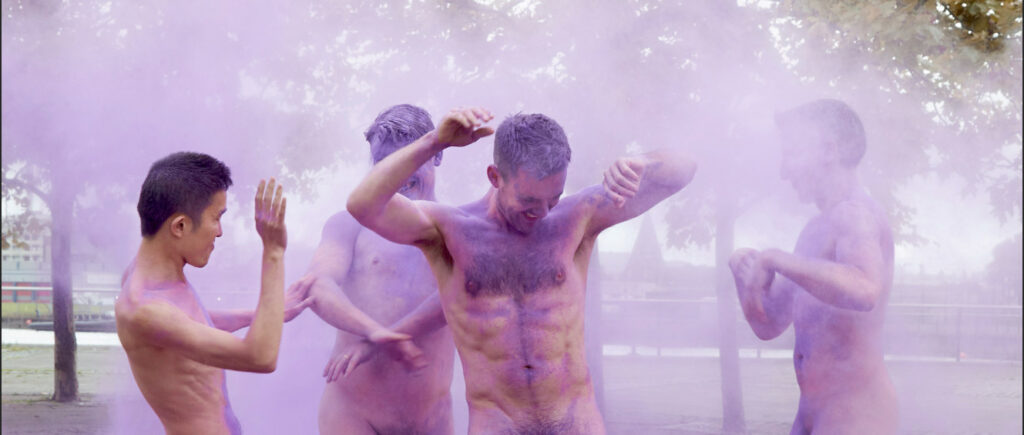
It’s never been more important to get our message across, so it’s great to see mainstream news sources like SKY Sports and the Daily Mail recognising our work. And with growing threats to LGBTQ+ rights in many countries, it’s equally important that long-time supporters in the LGBTQ+ community recognise the direct and continuing relevance of our work.
Once you’ve shared this email with your friends, why not share the links to these articles on social media? In the era of fake news, it’s good to share content from recognised sources that everyone can rely on.
Let’s get the word out! Together we can put healthier masculinity on everyone’s wish list for 2021.
Thanks and best wishes
The WR Team
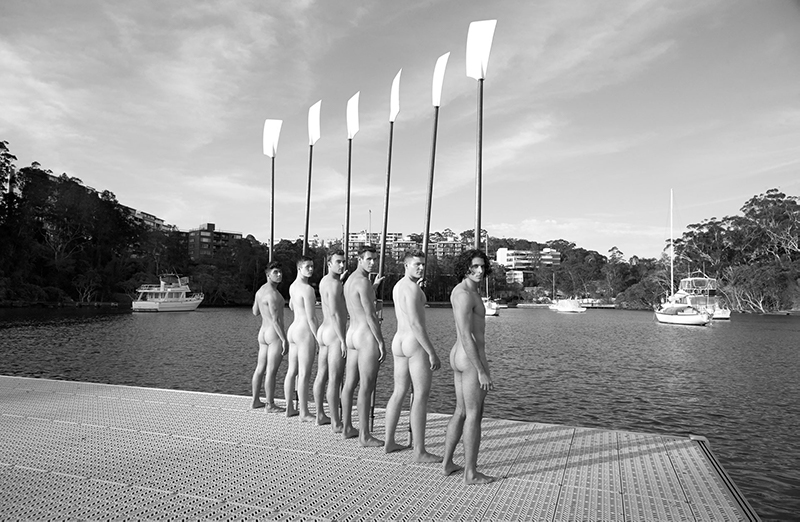
Our most famous participant, world record holder and Olympic rowing legend Robbie Manson, tells SKY Sports, the UK’s leading sports media platform, why he cares about the Worldwide Roar, about male mental health, and about LGBTQ+ rights.
Read More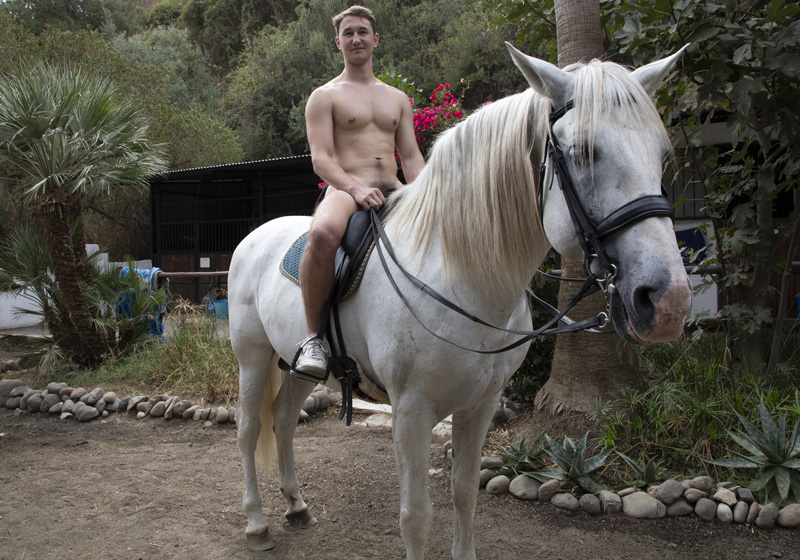
The internationally popular Daily Mail supports our campaign to change how we look at men by introducing a mainstream audience to more male skin than they’re used to.
Read More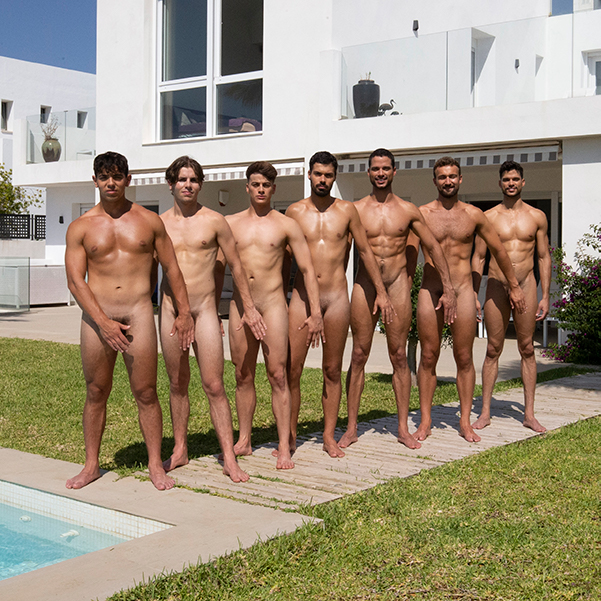
And Gay Star News brings their global LGBTQ+ audience up to speed on how the Warwick Rowers project has become a global campaign for healthier masculinity.
Read More